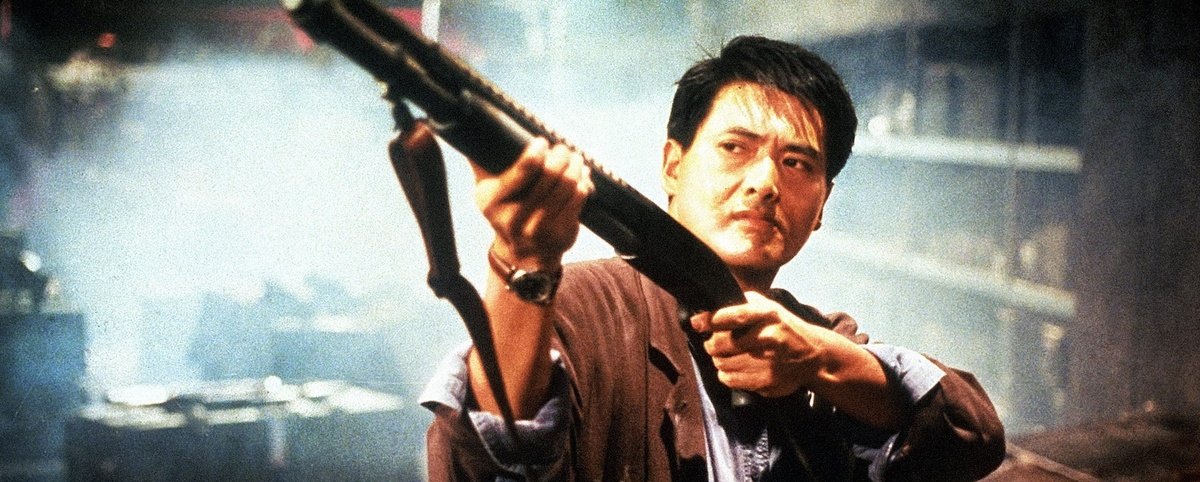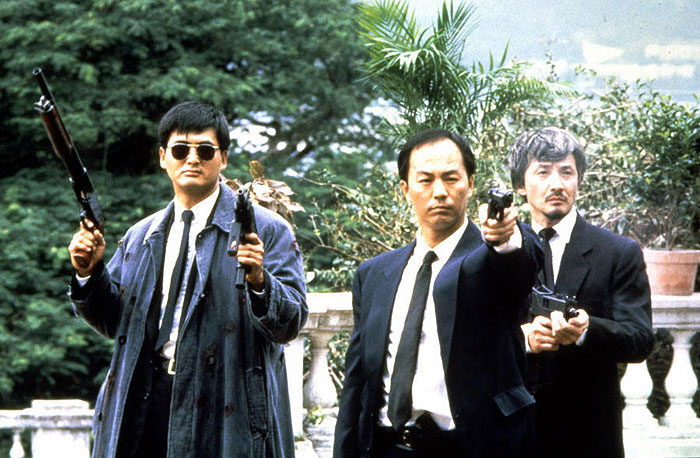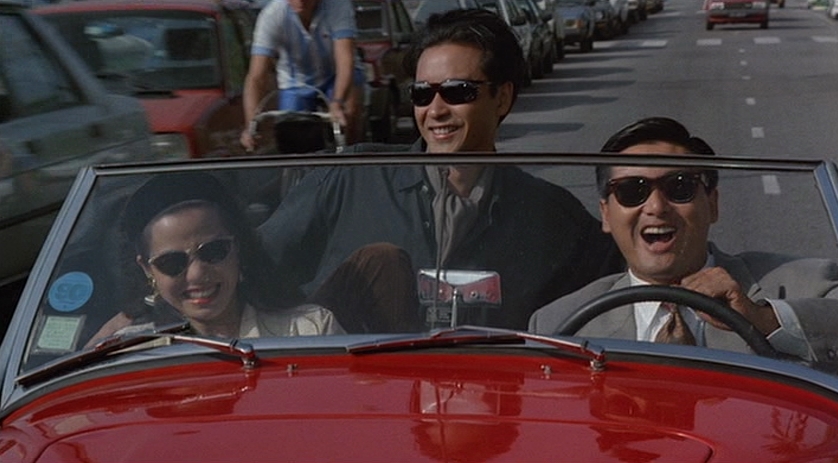Archiwum - 9. Festiwal Filmowy Pięć Smaków
Retrospektywa: John Woo
 Chow Yun-fat w "Dzieciach triady"
Chow Yun-fat w "Dzieciach triady"Sześć hongkońskich arcydzieł filmu gangsterskiego i kamieni milowych w rozwoju kina akcji. Gwałtowne emocje, kierujący się podziemnym kodeksem honorowym bohaterowie, baletowe sekwencje strzelanin i białe gołębie...
W połowie lat 80. kinematografia Hongkongu eksplodowała produkcją dziesiątek sensacyjnych filmów. W celuloidowej rzeczywistości to mieniące się setkami barwnych neonów miasto zamieniło się w niebezpieczny, duszny i przepełniony ludźmi labirynt, w którym zwierzyną łowną byli na przemian policjanci i gangsterzy. Zaproponowana przez azjatyckich filmowców wizja była tak kusząca i atrakcyjna, że kino hongkońskie znalazło uznanie wśród maniaków filmowych na całym świecie. Ich techniczna sprawność zachęciła natomiast twórców hollywoodzkich do zmiany sposobu realizacji scen akcji. Dziś wpływ Hongkongu widać w każdym mainstreamowym filmie.

Lepsze jutro 2, reż. John Woo
Sprawcą zamieszania był John Woo, a wszystko zaczęło się w roku 1986. Woo był już wówczas doświadczonym twórcą filmów wuxia, ale wciąż czekał na swój pierwszy przebój. Spotkanie z wybitnym producentem, Tsuiem Harkiem, i znanym głównie z finansowych niepowodzeń aktorem, Chow Yun-fatem, zaowocowało filmem "Lepsze jutro". Popularność tego gangsterskiego dzieła przerosła najśmielsze oczekiwania – pobiło ono wszystkie dotychczasowe rekordy frekwencyjne, wpłynęło na cały przemysł filmowy, a także na modę i sposób zachowania młodych mieszkańców brytyjskiej kolonii. Woo, Tsui i Chow stali się z dnia na dzień najgorętszymi nazwiskami tamtejszej branży; dzisiaj "Lepsze jutro" jest wymieniane w czołówce najistotniejszych filmów w historii Hongkongu. Uznaje się, że obraz ten zainicjował nowy gatunek – "heroic bloodshed", w którym opowieści o współczesnych miejskich wojownikach zostały oprawione w ramy błyskotliwie zrealizowanych, pełnych strzelanin, filmów akcji.
Woo poszedł za ciosem. W swoich kolejnych pięciu filmach, zakochany w kinie reżyser, rozwijał pomysły z "Lepszego jutra", doskonaląc warsztat i budując reputację wybitnego stylisty. Skomponowane przez niego sekwencje akcji są połączeniem znakomitej choreografii z bardzo precyzyjnym i efektywnym montażem. Z tego powodu nazwisko reżysera wymienia się dziś jednym tchem z takimi innowatorami kina jak Sergio Leone czy Sam Peckinpah.

Był sobie złodziej, reż. John Woo
Ale Woo miał znacznie większe ambicje niż tylko stać się specjalistą od zapierających dech w piersiach i cieszących oko strzelanin. Wychowanego zarówno na kinie Dalekiego Wschodu jak i hollywoodzkich klasykach reżysera interesowało sprawdzenie nośności klasycznych gatunków w zderzeniu z filozofią i technikami realizacji filmów azjatyckich – przede wszystkim wuxia.
W programie retrospektywy znajdą się więc zarówno zainspirowany "Samurajem" Melville'a melodramat ("Killer"), jak i lekka komedia w scenerii Lazurowego Wybrzeża ("Był sobie złodziej"), a także film wojenny ("Kula w łeb"). Ostatnim filmem Woo przed wyjazdem do Fabryki Snów i kolejnym etapem kariery były "Dzieci triady" z roku 1992. To film akcji wyniesionej do poziomu absolutnego, którego finezja i wyrafinowanie zdumiewają do teraz, stanowiąc inspirację dla kolejnych pokoleń filmowców. We wszystkich tych filmach pojawiają się, ważne dla Woo, wątki przyjaźni, lojalności, zdrady czy odkupienia.
Przez te sześć owocnych lat Woo towarzyszył Chow Yun-fat, razem stworzyli duet równie znakomity co Scorsese z De Niro czy Melville z Delonem. Chow był dla reżysera "Lepszego jutra" wcieleniem bohatera idealnego, ale w sekcji tej zobaczyć będzie także można innych znakomitych hongkońskich aktorów - m.in. Lesliego Cheunga, Tony'ego Leunga czy Simona Yama.
Program sekcji
"Retrospektywa: John Woo" 9. edycji Pięciu Smaków to sześć wyjątkowych tytułów, po raz pierwszy prezentowanych w Polsce na dużym ekranie:
- Był sobie złodziej (Once a Thief, 1991)
- Hard Boiled. Dzieci triady (Hard Boiled, 1992)
- Killer (The Killer, 1989)
- Kula w łeb (Bullet in the Head, 1990)
- Lepsze jutro (A Better Tomorrow, 1986)
- Lepsze jutro II (A Better Tomorrow II,1987)



